For this time-worn punter, nearly 12 hours of straight rocking out can seem intimidating, but in hindsight my Goner-rific day zipped by without a hitch. The daytime action, of course, is at Murphy’s Bar. Typically, I make straight for the outdoor stage, but the eerie pop sounds of Pscience stopped me in my tracks. Blending what could be classic big beat sixties tunes with odd harmonics and noise, this group, who only just had their first show earlier this month, has certainly hit upon a good psonic compound in their New Orleans-based laboratory.
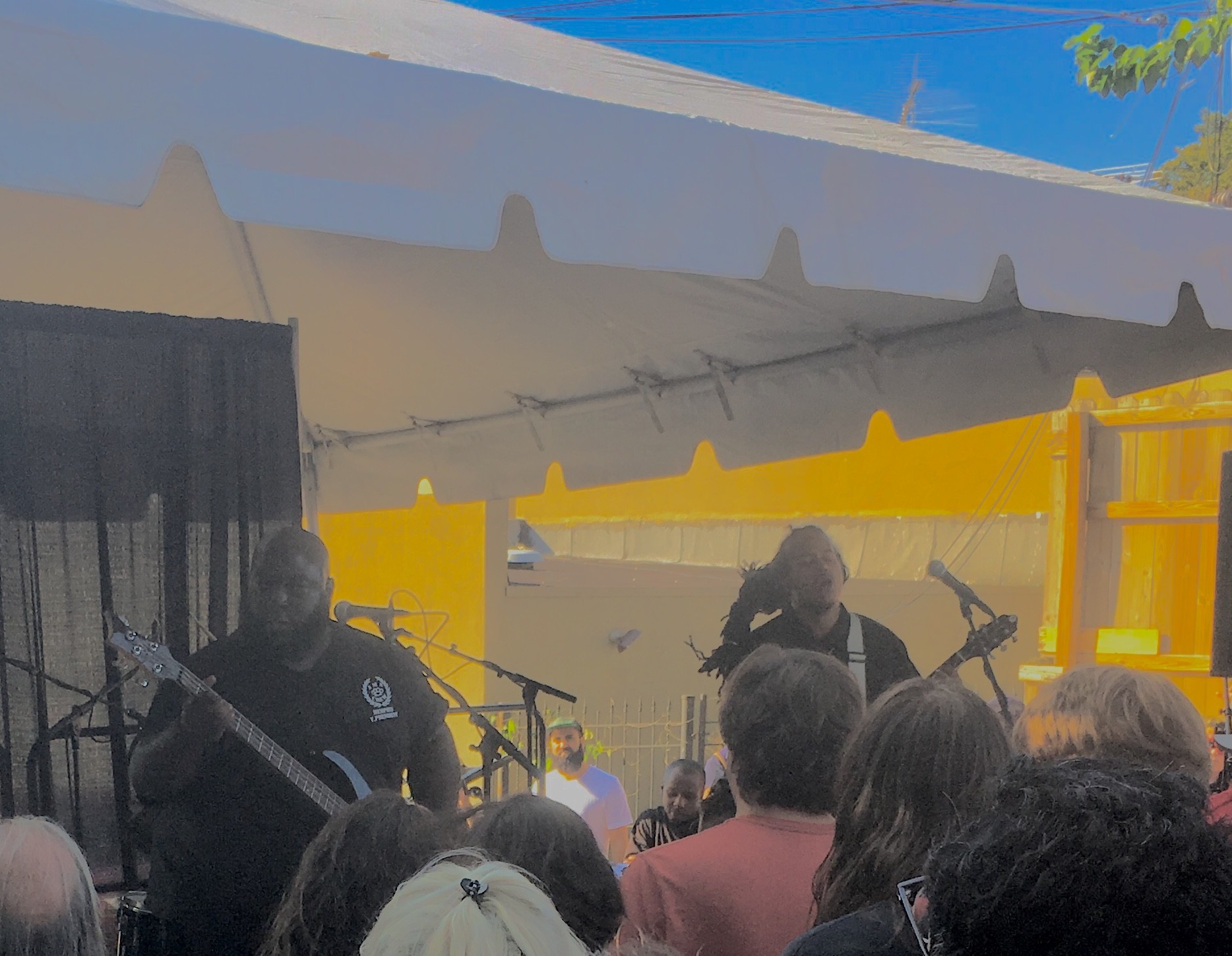 Alex Greene
Alex Greene
Negro Terror
Then Negro Terror appeared outside, and we heard a whole other kind of eerie. Their chords of doom revving up, the trio was perhaps the most cathartic band of the festival, as they directly addressed the ugly elephants in the room: recent stress over the the rise of fascist groups, and violence in the city. Singer Omar Higgins started with a dedication to Phil Trenary, the beloved president of the Greater Memphis Chamber of Commerce who was recently murdered. “Phil came to our shows. He understood the message,” said Higgins, before launching into raging hardcore riffage. He also reflected the general rage over the recent shooting of Martavious Banks by Memphis police officers, with the anthem, “All Cops Are Bastards (ACAB).” Higgins then dedicated their cover of Detain’s “Capital Punishment” to rapists, and quoted General Patton on the importance of killing Nazis. “Nazis!” Higgins called out, his hand raised in salute, until it became a thumbs-down. “Raus!!”
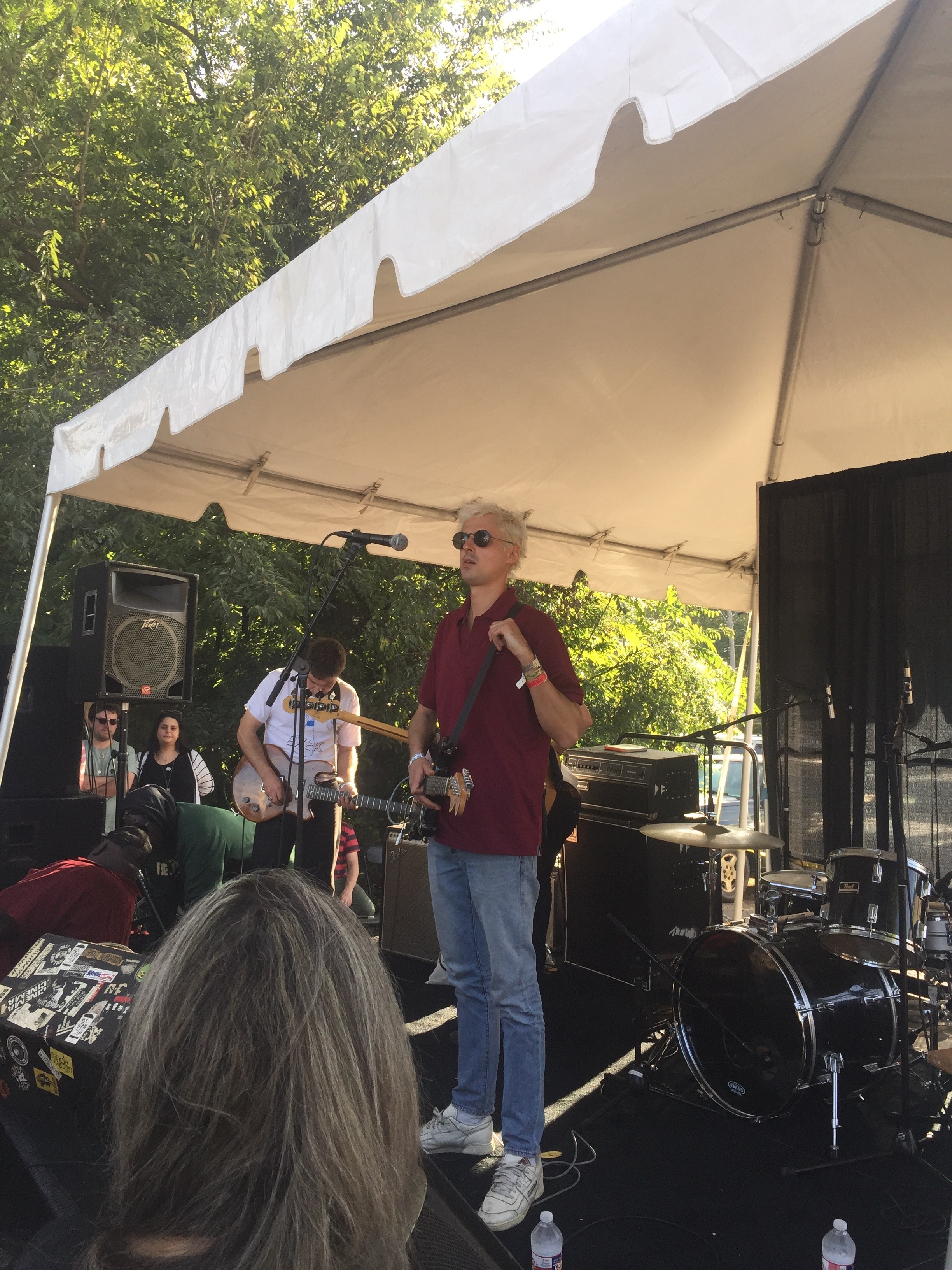 Michael Donahue
Michael Donahue
Exek
One longtime Gonerfest-goer commented later, “It’s been good to hear so many political songs at this Gonerfest. They usually have such apolitical punk, and the apathy always bugged me.”
But those in search of escape rather than confrontation didn’t have to wait long, for soon Australia’s Exek took the stage with a subtler sound. They betrayed no emotion as they earnestly led the crowd down a hypnotic spiral, sounding like the love child of Stereolab and early Wire. Propelling it all was a powerful bass and drums that at times recalled Sly and Robbie, sans any hint of white reggae. A fascinating blend.
 Alex Greene
Alex Greene
Exek
Then, even the most sedentary fans piled in to the bar’s smokey interior for one of the festival’s most anticipated shows, A Weirdo From Memphis (AWFM), backed up by the Unapologetic crew. DJ’d platters and a live band meshed seamlessly as AWFM proved his freestyle mettle, laced with satisfying expletives that caught the mood perfectly.
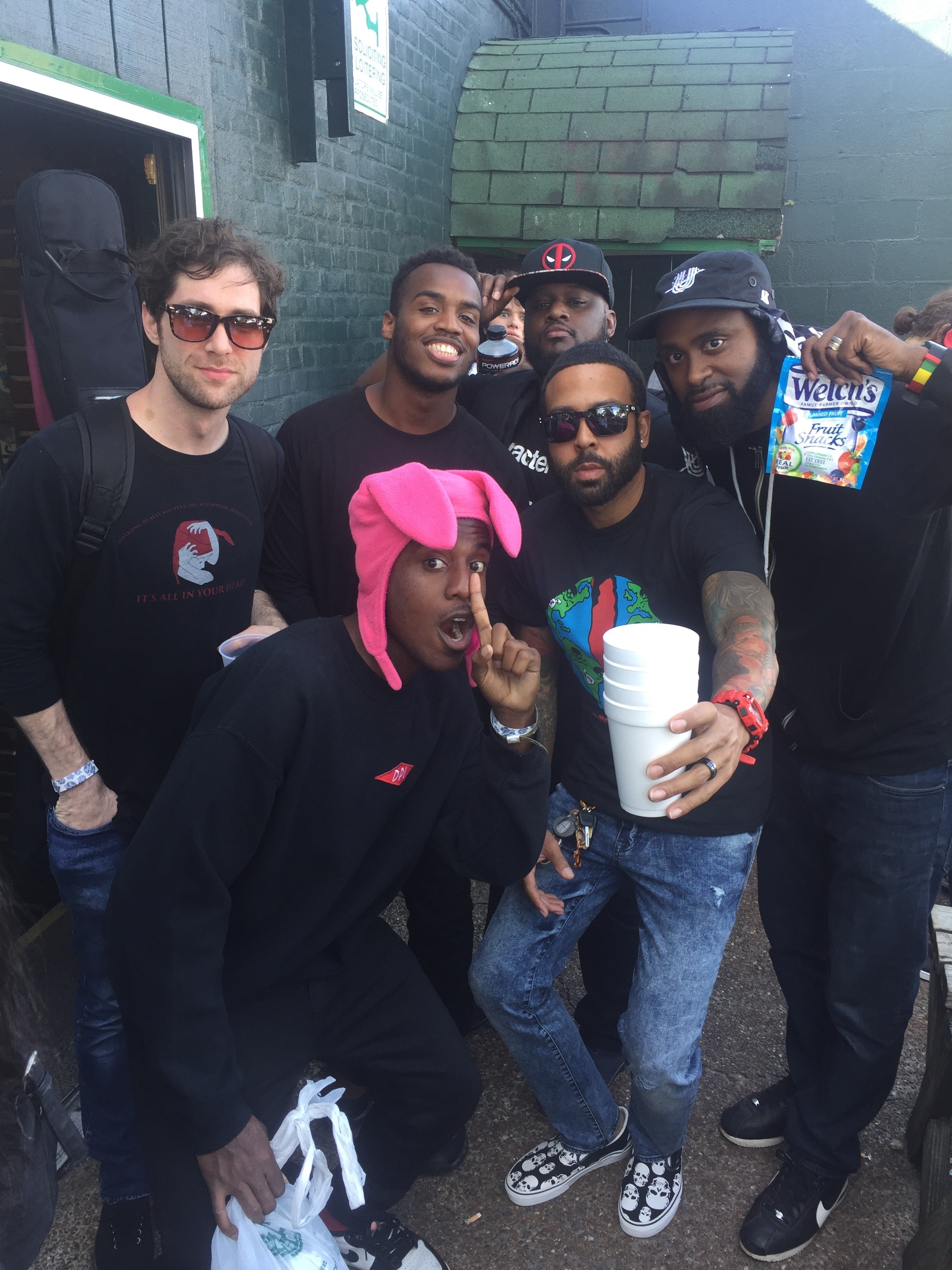 Michael Donahue
Michael Donahue
AWFM with fellow Unapologetics and Crockett Hall (far left).
Then it was back outside to hear the afternoon’s closer, Robyn Hitchcock. Given that all of his previous Memphis appearances, going back to 1990, were solo, this show, featuring a crack East Nashville band that included Wilco’s Pat Sansone on bass, arrived with heightened expectations. And they delivered, as the combo never missed a beat amid the jangling 6- and 12-string guitars, vocal harmonies, and driving Brit-pop beats. As with his old bands, the Soft Boys and the Egyptians, Hitchcock’s surreal lyrics cruised effortlessly above the delicate, yet pulsing, rock sounds.
Recalling his first Memphis show, 28 years ago, Hitchcock then tried to imagine what the world would be that many years hence. “No doubt they’ll be releasing the iPhone 21 around then. I may be gone, but I’ll live on in an app, so my ego can have the last laugh. You’ll be able to have the app compose songs exactly as I would. Or you’ll be able to mix and match songwriters, so it’ll compose in the style of, say, me, Tom Petty, and Joni Mitchell.”
The fading day echoed with many such flights of verbal fancy, in a wide-ranging set that included the Soft Boys’ “I Wanna Destroy You” and the Egyptians’ “Element of LIght” and “Listening to the Higsons.” They echoed up and down Madison Avenue as darkness fell, and all the little Goners readied themselves for the night.
 Alex Greene
Alex Greene
Robyn Hitchcock
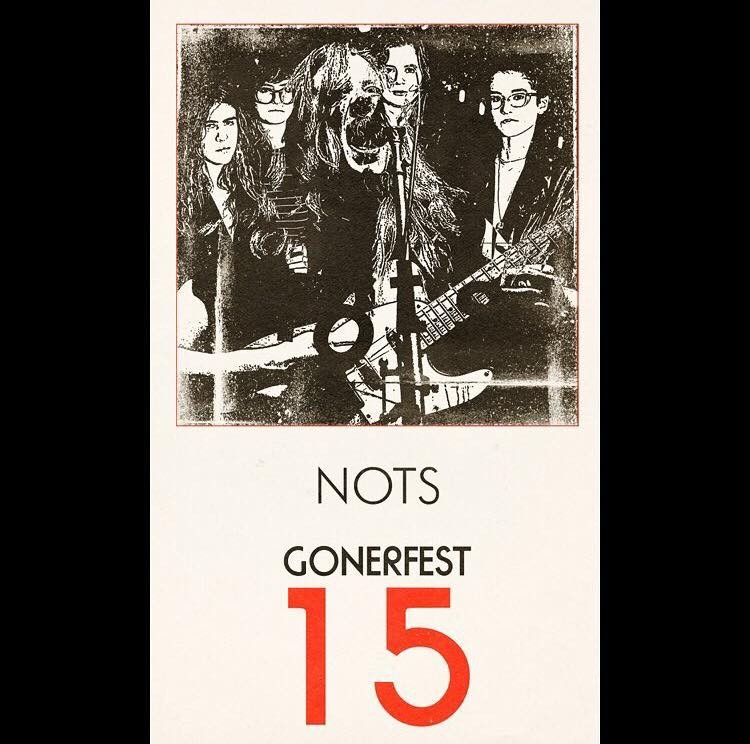 Goner
Goner
NOTS as portrayed on Gonerfest 15 poster.
Not being quite ready for a long night myself, and being a teetotalling tea head, I supped some strong brew and victuals, missing out on Oh Boland and Amyl & the Sniffers, alas. Arriving at the Hi Tone as the NOTS played, I took some considerable hometown pride in the audience’s rave reaction to what the Goner program guide calls the city’s “synth/guitar squiggle punkers.” They did not disappoint, though it was tough to wedge into the packed room.
And then came a blast from the past, the fabulous Neckbones, once rightly hailed as rock’s saviors some 20 years ago. Newly reunited, they were in true form as they pummeled the crowd with what can only be called maximum R&B, old school rock-and-roll grooves amped up to 11, attacked with genuine ferocity by the Oxford, MS, quartet. Tyler Keith channeled a Southern preacher with his between-song rants, and drummer Forrest Hewes yelled out his gratitude for the audience’s frenzy in flurries of swear words.
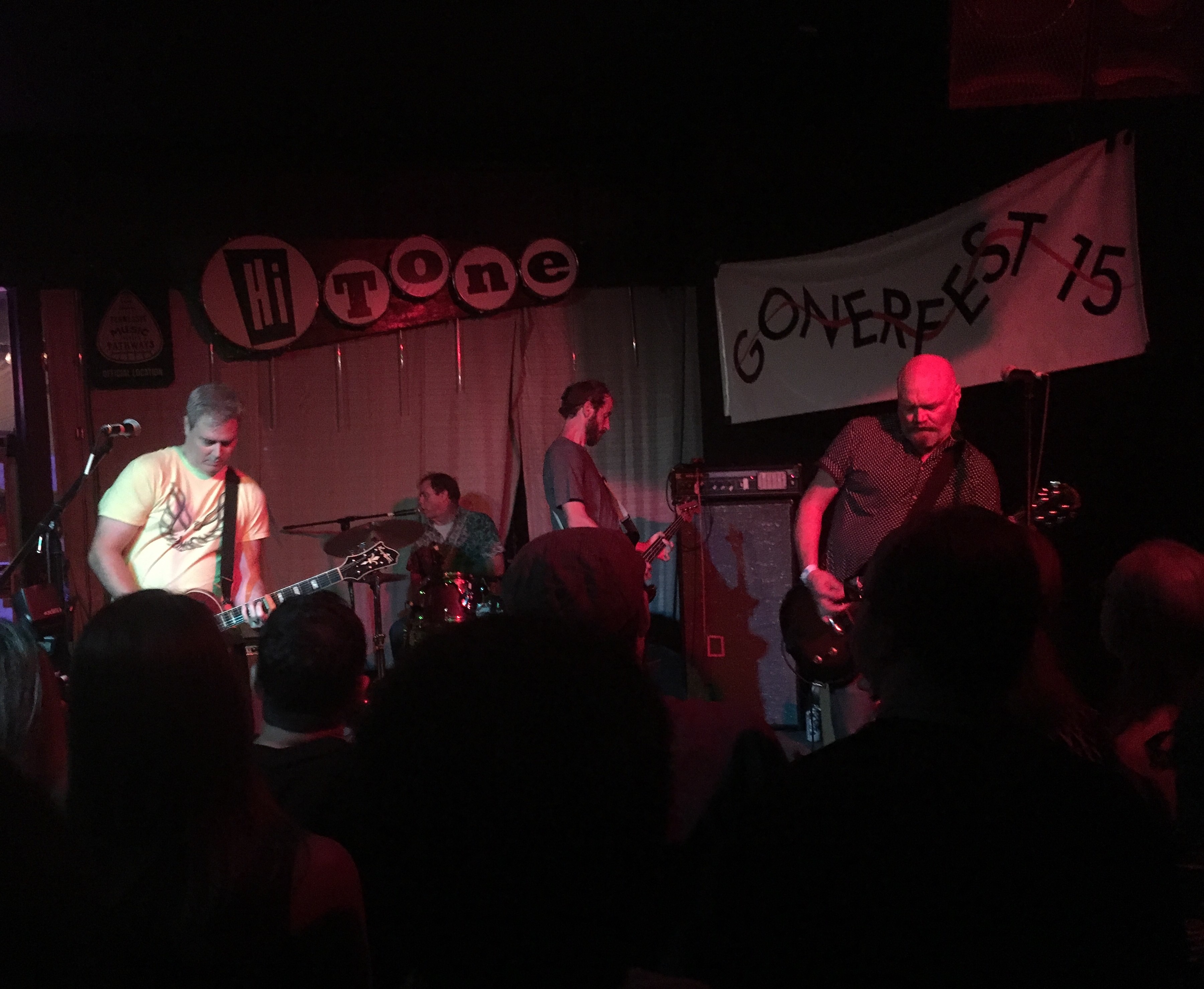 Alex Greene
Alex Greene
Neckbones
After that, Melbourne’s Deaf Wish, in the unenviable position of following the Neckbones, rose to the occasion with their thorny post-rock rock. There was plenty of noise and wiry, dissonant guitar, but the driving rhythms rocked hard, befitting a band just wrapping up a month long tour. They seemed elated to be ending their U.S. venture on such a Goner note.
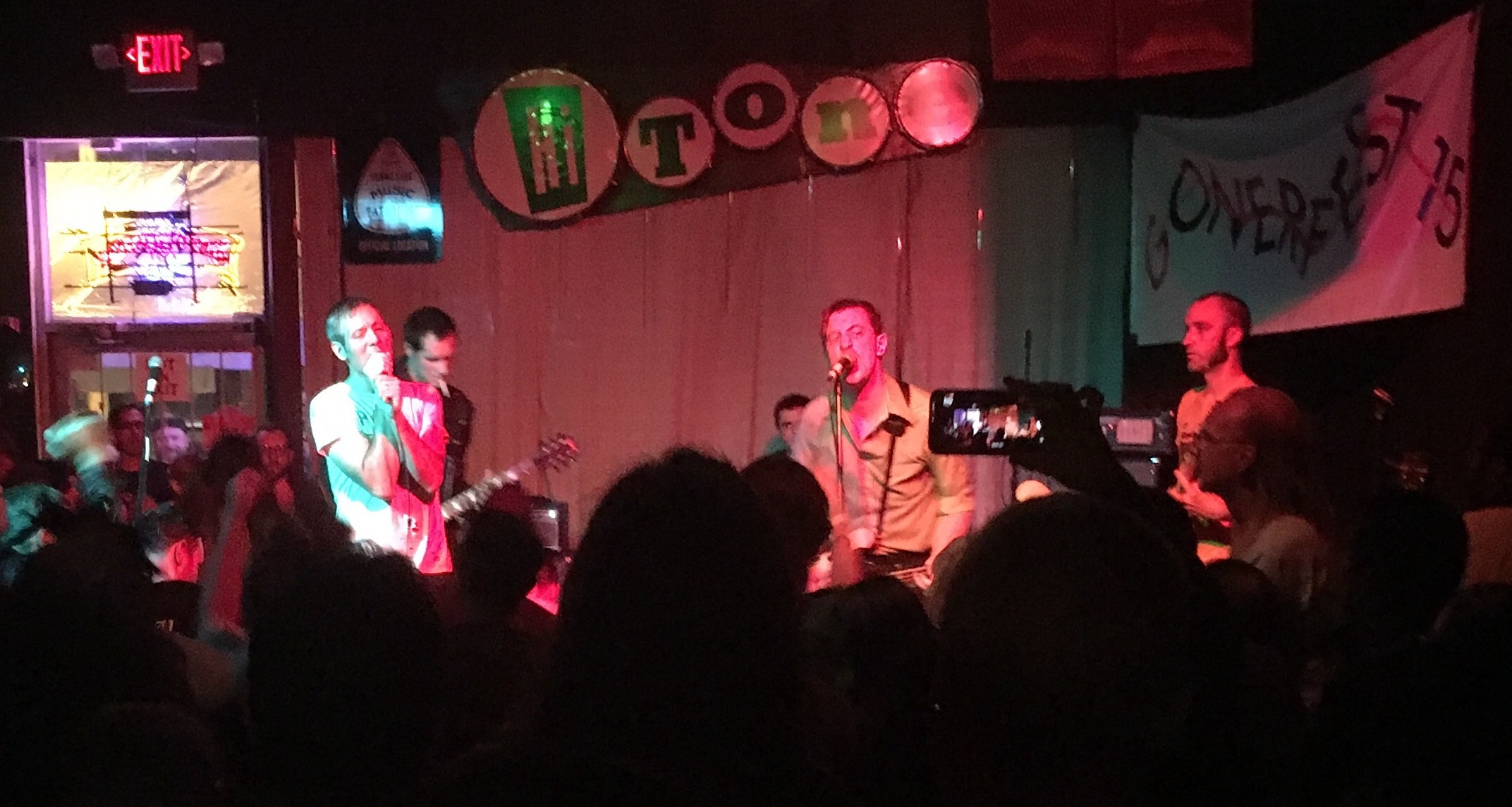 Alex Greene
Alex Greene
Carbonas
And so the night’s endgame began, as the Carbonas, who gained much love in their prime over a decade ago, took the stage in their one-night-only, Goner-fueled reunion. Time seemed meaningless as they immediately regained all the chemistry that dissipated when they broke up. Though drummer Dave Rahn’s shirt implored us to “Kill the Carbonas For Rock and Roll,” it was the group that killed it on this night. A friend and neighbor confessed between songs that “this group helped me survive grad school,” and even this fan from back in the day was not disappointed. Nor was the still-packed house, all sporting happy faces as they filed out.
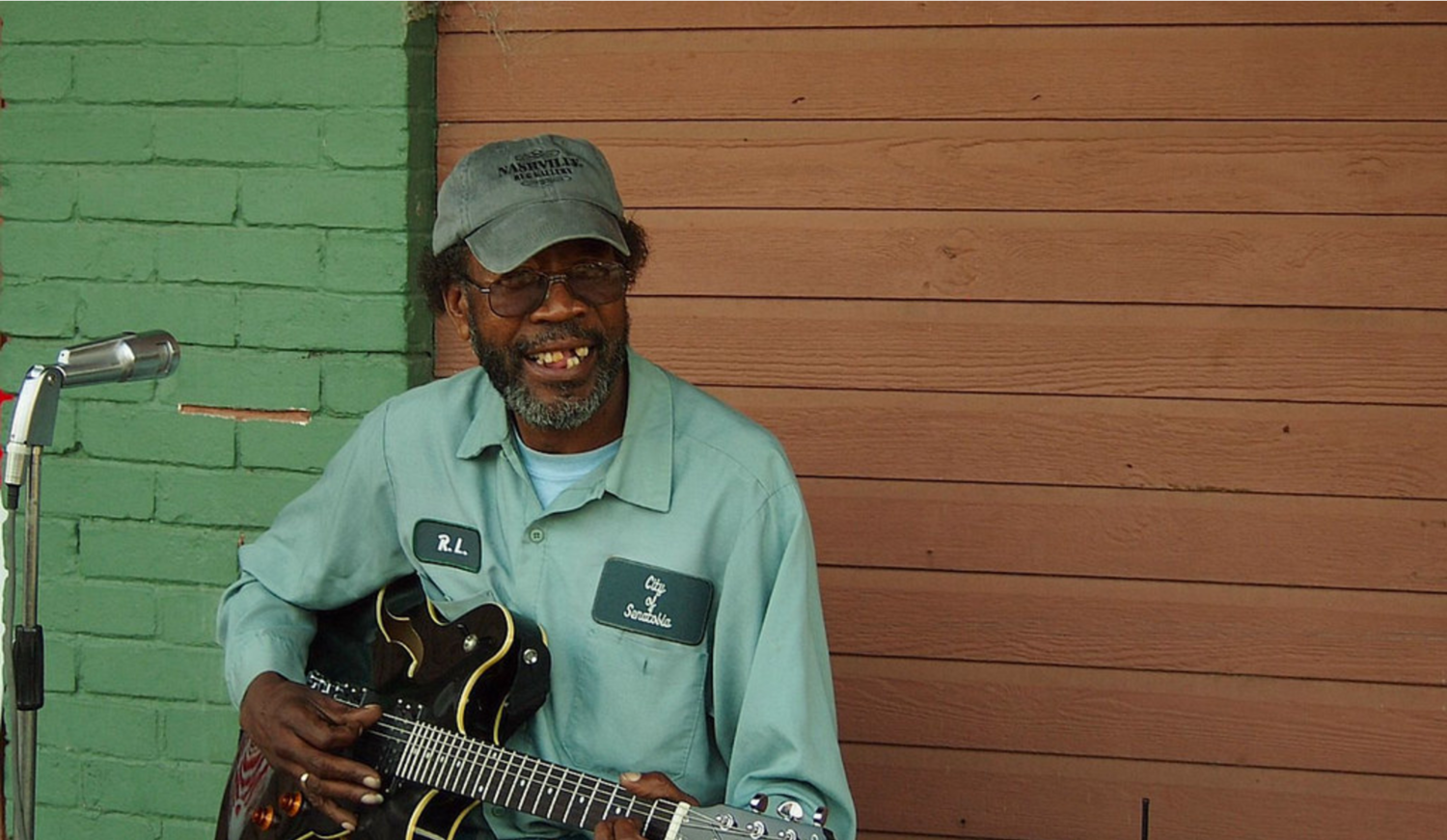
R.L. Boyce
For some, the night raged on, of course. Eric Oblivian, not content to co-manage the festival, play with the Oblivians, and oversee the Murphy’s show with a child on his back, played Saturday night’s/Sunday morning’s after party with his old outfit, the AAAA New Memphis Legs. And then came Sunday at the Cooper-Young gazebo, featuring R.L. Boyce and Lightnin’ Malcom, as festival-goers bid adieu to their comrades until next year (?), or made plans to convene at Bar DKDC that night, to the groovy, basement-dredged sounds of Memphis’ own Hot Tub Eric. Farewell, Gonerfest 15, and many happy returns!
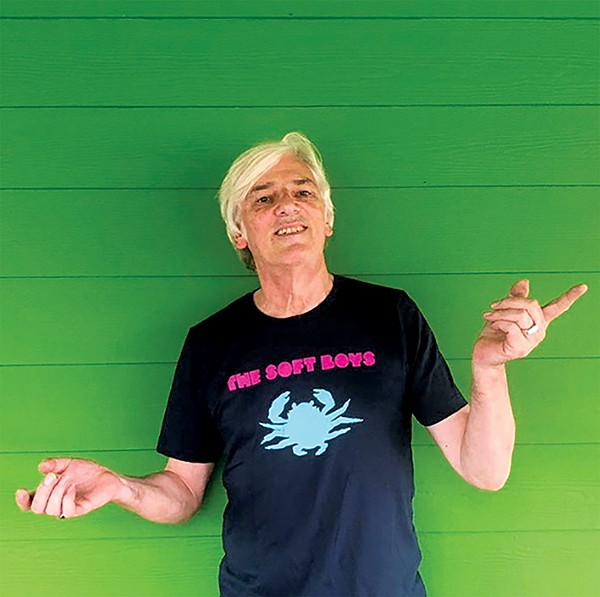
 Jasmine Hirst
Jasmine Hirst